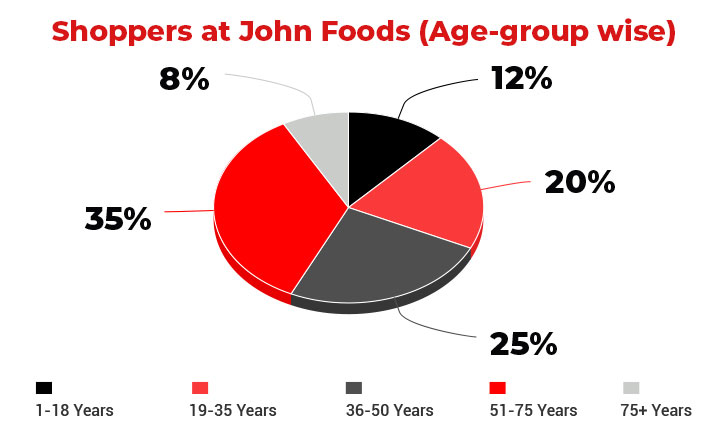Ever wondered how much data gets produced in a day? The current estimate stands at 1.145 trillion MB per day. And it’s predicted that 463 exabytes of data will be generated each day by people by 2025. Alright, that’s enough about the numbers!
What we must, however, understand is that it indicates data explosion. And if the staggering modern business numbers’ growth suggests anything, it will continue at an unmatched pace. Deriving actionable and digestible insights with the sheer volume of unstructured data generated by today’s businesses are primarily challenging unless supervised and analyzed strategically. Every business, thus regardless of the size and spread, requires a data analytics tool to thrive in the market. Otherwise, the business data would become a big trash dump.

Thankfully, there are already many BI and data visualization tools in the market to unveil meaningful business metrics. Among all the Business Intelligence tools there, Tableau analytics steals the thunder. The world’s leading research firm, Gartner, has conferred Tableau as a leader for the ninth consecutive year.
Illustrating How Tableau Can Help the Businesses:
Consider this scenario:
There is a fictitious business called “John Foods” in Hampton, Virginia. They opened their first department store in 2017. John Foods initially managed and stored their data and accounting records like invoices and receipts, payroll records, and bank statements in excel files and on the private cloud.
As their sales went up and the business grew, they opened new chains. Soon, managing, understanding, and making decisions became challenging. The company found it hard to derive actionable insights, thereby losing prospective customers while another supermarket chain serving the same region performed well. The company’s CEO, John then decided to deploy the Business Intelligence tool “Tableau”.
The employees working at “John Foods” were surprised with the outcome. They could observe, understand and seamlessly arrange their data records and get insights with beautiful visualizations. Tableau also helped them in setting millions of rows of sophisticated statistical data with ease.

For instance, using this data, John Foods derived that the age of their typical shopper ranges from 40-55 years. So, they could introduce goods catering to this audience, thereby growing their business. This is one of the many benefits of deploying Tableau.
Why Businesses Should Invest in Tableau Data Analytics
1. Data analysis at the speed of thought
The manual process is always laborious and time-intensive. If you manually pull data from disparate sources for analysis, you may end up investing a few hours, days, or even weeks. With Tableau’s simple drag-and-drop features and built-in data connections, you get data in beautiful visualizations for analysis. Moreover, the time saved in collating data could be utilized by data analysts for analyzing data and drawing out meaningful insights.
Make Data Democratization a Reality with Tableau BI
2. Connect with any data source
Another great feature of Tableau is connecting it to a wide gamut of data sources ranging from Microsoft Excel, PDF to Google Sheets, Google Analytics, Dropbox, Salesforce, SAP HANA, and databases like MongoDB MySQL, Elasticsearch, etc. By simply connecting Tableau to any data source, you can export all your unstructured data (without Ctrl C + Ctrl V) for analysis. Once your data is brought into Tableau, you can create a centralized view and save yourself from the hassle of going through multiple disparate reports.
3. Integrate with programming languages
With the help of Tableau, you can perform basic calculations by simply using the drag-and-drop functionality. However, suppose you want to go a step ahead and do some complex analysis. In that case, the Tableau Business Intelligence tool allows you seamless integration with Python or R scripting language, thereby helping you analyze data with visual analytics. In other words, Tableau is designed to work cohesively with expansive programming languages, offering businesses the flexibility to incorporate custom calculations, advanced analytics, and specialized functionalities into their data workflows.
4. Mobile-ready Dashboard
Analyzing data on the go has never been easier until the arrival of Tableau. This mobile-friendly BI tool allows you to view spreadsheets and data reports across all smartphones, tablets, or laptops. The best part is that you don’t have to do anything to make your dashboards mobile-friendly. It automatically understands on what device you are accessing the data reports and makes adjustments accordingly.
A Step-by-Step Guide to Tableau Data Visualization
5. User-friendly Interface
Tableau stands out in the realm of data analytics for its user-friendly interface. With a minimal learning curve, employees across departments can quickly gain proficiency in creating and interpreting data visualizations. This democratization of data empowers non-technical users to leverage the potential of Tableau data analytics, fostering a more collaborative and data-savvy workforce.
6. Security and Compliance
Security is the key priority for businesses handling critical data. Unlike other data analytics tools, Tableau provides robust security features, including data governance tools, encryption, and role-based access control. This ensures that sensitive business data is protected, and enterprises can maintain compliance with internal policies and industry regulations.
7. Collaborative Decision-making
Tableau provides a platform where teams can share and discuss insights in real-time, promoting collaborative decision-making. Whether working remotely or in the same office, stakeholders can collaborate on a centralized dashboard, fostering better alignment and communication. This collaborative approach ensures that decisions are based on a holistic understanding of the data.
Conclusion
Tableau Visualization helps businesses understand their data and make informed decisions. However, this robust data analysis tool does not work on its own. If you want to make the most of this tool, we recommend contacting our Tableau consulting services experts and discovering what’s best for your business.





